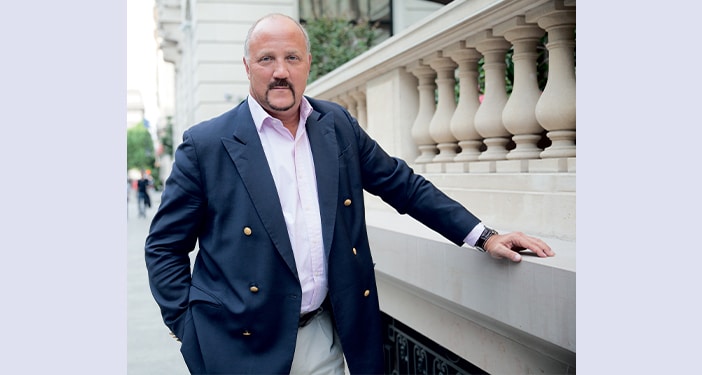As President Trump’s tenure comes to an end, there is a lot of talk about his power to issue presidential pardons. Everyone from political figures and journalists is urging the President to pardon individuals. Representative Tulsi Gabbard (D-HI) advocated on Twitter for President Trump to drop charges against National Security Agency (NSA) whistleblower Edward Snowden and WikiLeaks founder Julian Assange. Others have also urged President Trump to pardon Snowden or suggested that President Trump should preemptively pardon his whole family. NSA whistleblower Reality Winner, who divulged information about Russian interference in the 2016 U.S. elections, has also become a subject of conversation on presidential pardons. Journalist Tom Whitehurst Jr. wrote in an opinion piece urging that Winner be granted a presidential pardon and lamenting the fact that mainstream media had not given her story the proper coverage.
Presidential pardons became part of a larger conversation last week as Trump doled out 41 pardons over the two-day period. Notable individuals on this list include George Papadopolous, who was a campaign adviser for Trump, Trump’s former campaign manager Paul Manafort, Roger Stone, a longtime friend of Trump’s, and Charles Kushner, the father of Trump’s son-in-law Jared Kushner. Papadopolous was charged with false statements while Stone was charged with obstruction of proceeding, five counts of false statements, and witness tampering. Manafort’s charges centered around tax and bank fraud, and Kushner was charged with fraud and 16 counts of false statements, as well as “retaliating against witness, victim; statements or entries generally,” according to the U.S. Department of Justice. Among the individuals granted pardons in the past week were “Blackwater mercenaries who were convicted for killing civilians in Iraq” and “two Border Patrol agents who attempted to cover up their shooting of a Mexican national fleeing arrest,” according to an NPR article.
However, absent from the 41 names of people Trump pardoned was UBS whistleblower Bradley Birkenfeld. President Trump should grant a presidential pardon to Birkenfeld. Here is why. Birkfeld’s whistleblower disclosures ended the practice of hiding assets in secret Swiss banks to avoid paying taxes. As of 2018, more than 56,000 delinquent taxpayers had come forward, and the IRS had collected $11.1 billion in back taxes, while numerous banks were successfully prosecuted or entered into settlement agreements with the U.S. government. The total amount of revenue generated from the U.S. government’s use of whistleblowers in detecting and prosecuting illegal Swiss banking is estimated at $16.19 billion. The U.S. government would not have uncovered this scandal if not for Birkenfeld coming forward.
Who Is Bradley Birkenfeld?
Birkenfeld worked for Swiss-based international bank UBS in charge of American business development. In 2005, Birkenfeld was made aware that UBS was engaging in fraudulent practices relating to “high-income Americans who were engaged in tax fraud,” according to a previous WNN profile about his story. He went to his supervisor about the discrepancies but was told not to “rock the boat.”
A year later, Congress signed into law the Tax Relief and Health Care Act of 2006, which offered monetary awards to whistleblowers who provided information related to tax fraud. Birkenfeld then went to the U.S. Department of Justice (DOJ) in 2007 and presented evidence of the fraud that had occurred at UBS. However, he was prosecuted by the Justice Department and arrested in 2008, even though he had been led to believe that he would not be prosecuted. In 2009, he was “sentenced to thirty months in prison and released in August of 2012” — he spent “20 months in home confinement, one month in community confinement, and three months in post-prison home confinement,” according to the WNN article. When he asked a federal judge to “end or modify his parole terms so he could leave the U.S., the DOJ opposed early termination.”
Birkenfeld’s treatment was absolutely unwarranted, especially given the recoveries that the U.S. government was later able to make in the UBS case. UBS was fined $780 million and “promised to ‘exit entirely’ from the U.S. tax-shelter business and to provide the names of thousands of American tax dodgers,” according to the TIME article. Additionally, his whistleblowing actions have made an impact in the U.S. and around the globe. Professor Dennis J. Ventry analyzed the long-term effects of Birkenfeld’s whistleblower award, which he argued had prompted many individuals to close their illegal offshore accounts in Swiss banks. In 2010, Congress “passed a law that forces banks to disclose accounts held offshore by Americans,” and in 2014, a report by the Committee on Homeland Security and Governmental Affairs criticized the DOJ’s handling of Birkenfeld’s whistleblowing and their treatment of him in the case.
Birkenfeld was rewarded with a $104 million whistleblower award from the IRS in 2012, the largest award to a tax whistleblower to date, but the work he has done to dismantle illegal banking is worth a presidential pardon. Birkenfeld has long been seeking a presidential pardon, first from the Obama administration. More recently, Birkenfeld hoped that President Trump would understand his frustrations with the DOJ and grant him a pardon
Birkenfeld’s brave actions have had positive effects on the international banking world and the United States at large. More than 50,000 U.S. taxpayers turned themselves in, resulting in more than $24 billion collected from banks and individuals. Birkenfeld deserves a presidential pardon.


